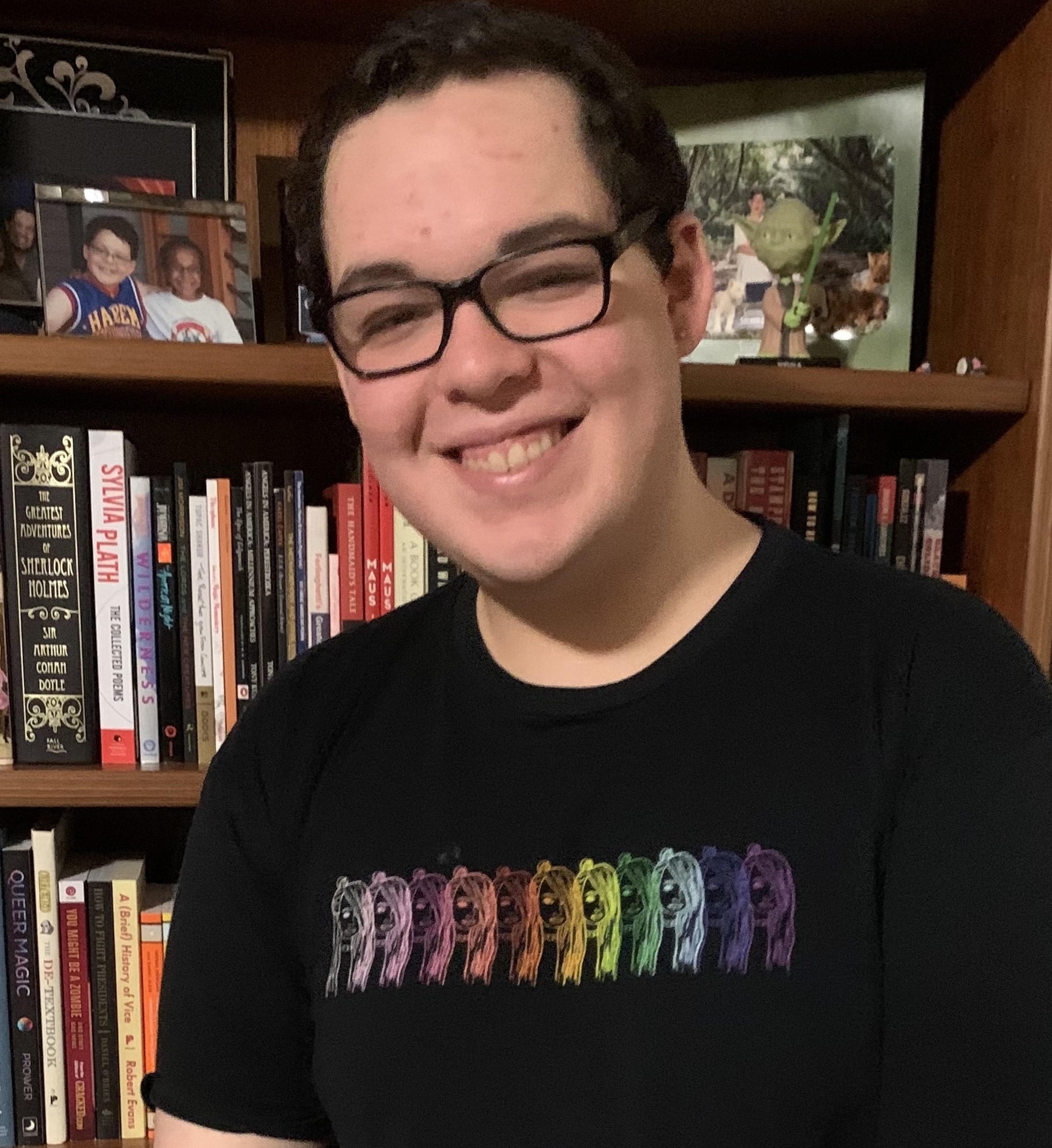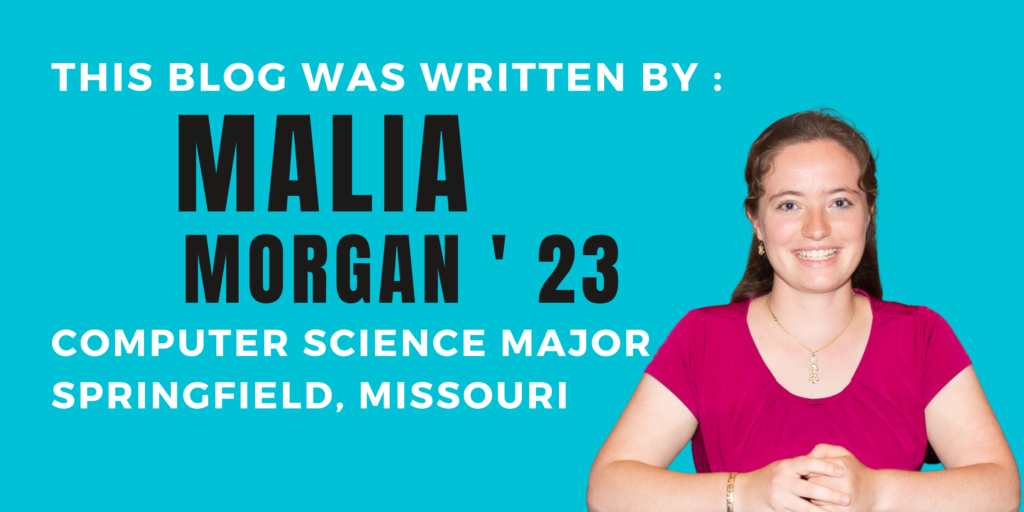HSA Concentrations: Chicanx-Latinx Studies
February 8, 2023Today’s blog post on HSA concentrations is a conversation with Tomás Aguilar-Fraga, a senior concentrating in Chicanx-Latinx Studies!

How did you pick your concentration?
So, I’ve always had a strong connection to the Chicano community. I’m Chicano, I consider myself Chicano, which is like Mexican-American, but a little more of a political term. I was raised around depictions of people like Cesar Chavez, who’s an activist, who really influenced how I grew up. I remember very vividly, we were not taught about the Chicano movement in my US history class, and I was really mad about that. The teacher said, “Well, you seem to know a lot about it. Do you want to do a presentation on it?” And I said, absolutely. And so I ended up doing a presentation on it. So this was in high school, right? And so in college I was like, I feel like this is something that I’m really drawn to. I want to start to do Chicano studies, you know, learn more about my people, learn how to contextualize different ways of talking about who I am, right. So that was kind of my way in, was from before. But after that I was just even more encouraged by the professors who I had. The first professor I had was Martha Gonzalez, I’m taking my third class with her this semester. She was a grad student at the University of Washington when my dad was at the University of Washington as a professor. So I had that connection already, and this classroom and the subsequent classrooms feel even more like communities than they do in a lot of other classes. Right? It just felt like a place I really wanted to continue to be in. So that’s kind of how I started, and kind of continued into that.
What classes have you taken so far?
I’ve taken, I want to say I’m on my sixth class now in Chicano studies. So I took three with Martha Gonzalez, all really surrounding the theme of art and activism and art as a practice rather than just a product; and how that relates to different sorts of activism. This time it’s focusing on music. Last time it was focusing more specifically on gender and how there’s an interplay there. But a lot of the other classes I’ve taken, one in particular that stands out was Introduction to Chicanx Latinx Sociology, and in that one the professor was just really great at presenting these themes and having us talk about these things and create based on these different themes. We had a lot of creative projects in that class. So yeah, those have been some of my favorites, because I’ve been able to go deep in on themes rather than necessarily specific historical events, or something like that. But the themes have been so great and so fulfilling.
Do you have a project that you’ve done in one of those themes that was especially compelling or interesting?
I did a little family history thing for that sociology class. One of the themes was talking about education, starting out with stuff like the Lemon Grove Incident in California, which was a precursor to Brown vs Board of Education, but with Chicanos and working on that. My dad had discovered when his mama died, which was a couple of years earlier, this speech that seemed to have been given by my grandfather about the importance of education in schools. My grandfather, he was trained to be a lawyer. There were these things that were like trade schools, but for being a lawyer in the 1940s or so, you know, a little bit earlier than that. And he was talking about the importance of desegregating schools because there were things such as Mexican schools, you know, in addition to black schools and white schools. He had given this really interesting speech, and so I translated it and talked about the importance of it with my father, and trying to understand how that’s been throughout our family history. That has been, I think, one of the most fulfilling things I’ve done in college, if not just in these sorts of classes.
Has your HSA advisor been especially helpful?
Prof. Balseiro, she’s lovely. I haven’t really gone to her in the same way, other than advising things. But she was really supportive, particularly in the beginning, in telling me this is a really great thing for you to choose, and something that felt like it fit me. So that’s been really good, I think I mean, because I have taken just so many classes with her, and have connected through that. Martha Gonzales, over at Scripps, has been a really great presence in these sort of talking about Chicano stuff with her and these classes and these sort of themes
You talked a little bit about finding community inside these classes and learning more about yourself. Do you find that that recontextualizes the math major for you, or that you pull from that into your math classes?
Absolutely, without a doubt. I think one of the things that’s a topic of discussion within the mathematics community always is that mathematics is a human practice. A lot of people see mathematics as kind of objective, because it’s math, right? So it’s objective, you know there’s no biases, or it’s as clean as it can be, and that’s not really true. Mathematics is really a product of the people that do it, and bringing in more perspectives, more diverse perspectives, really helps the mathematics be better. I think that’s something that I’ve been able to see through synchronizing the math that I’ve been doing with those Chicano studies classes. It helps me, I think, keep a human side to the math in a way that I would hopefully continue to do, even without. But it just really helps.
Do you have any fun facts about HSA at Mudd?
I have taken quite a few Mudd classes that I’ve enjoyed. I did a post-colonial literature class, I got a history of science class, I took a religious studies class about the end of the world, I took a music class, I took a psychology of human sexuality class. There’s a lot of broad things that I’ve been able to take at Mudd that, although not necessarily related to my concentration, have enriched my learning in it as a whole. And yeah, sometimes we talk about it the post-colonial literature class. There’s a clear intersection there with a lot of the things we talk about in Chicano studies. Even in the religious studies class, talking about native people’s versions of the end of the world, and kind of thinking about that in a context of Mexican Americanness and a connection to Indigenous peoples. So there’s been ways to see those sort of themes being collectively found through those through that those sort of methods
Do you have any advice for pre-frosh?
Yeah, definitely. I know there are some people who pick an HSA major, they don’t think they’re into HSA so they’re like “I took two economics classes already. I might as well do it,” and that works for some people. But I think you should think about looking at it differently, really taking the HSA seriously and looking at different ways of engaging with a topic that you may love, or you may learn to love throughout, you know. Be that history, or music, or art, or whatever right, that’s kind of my advice.
